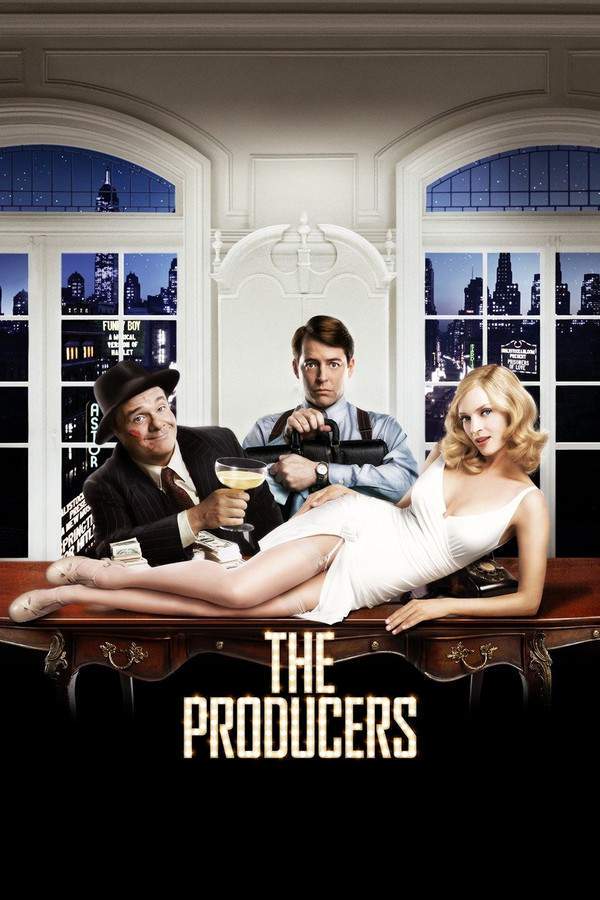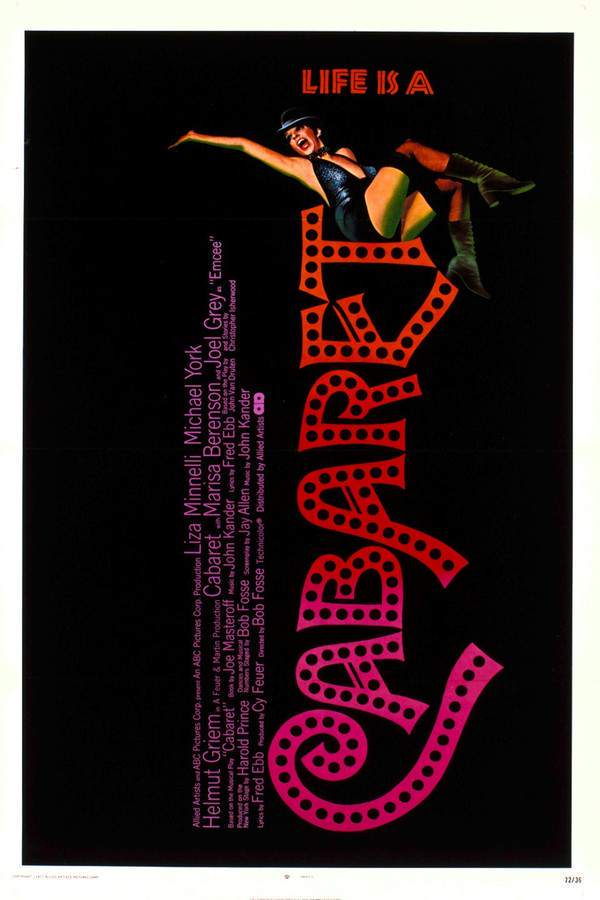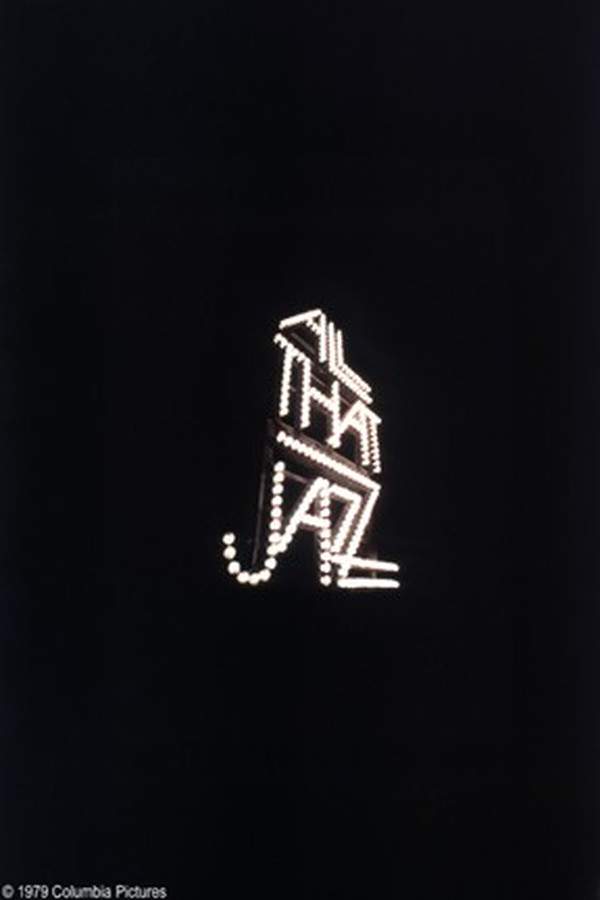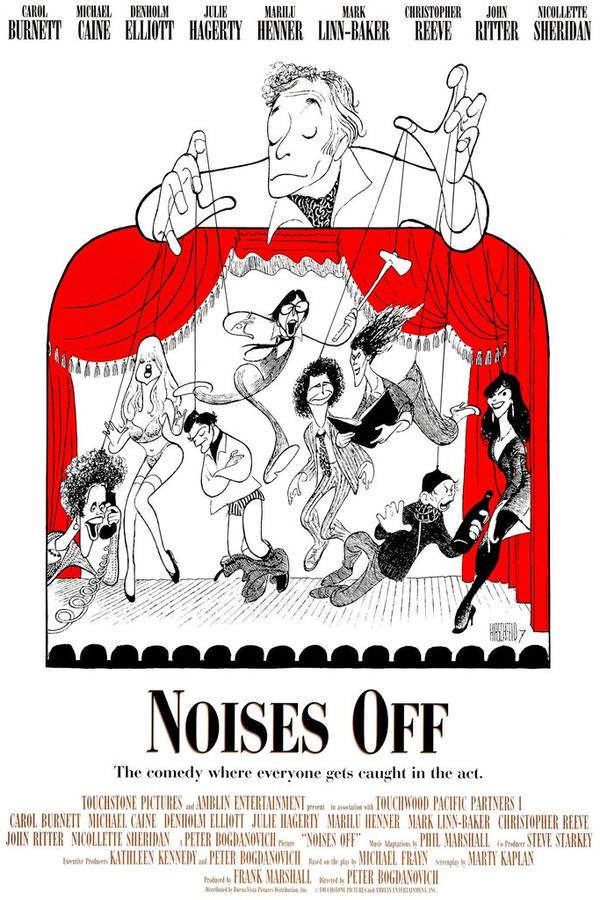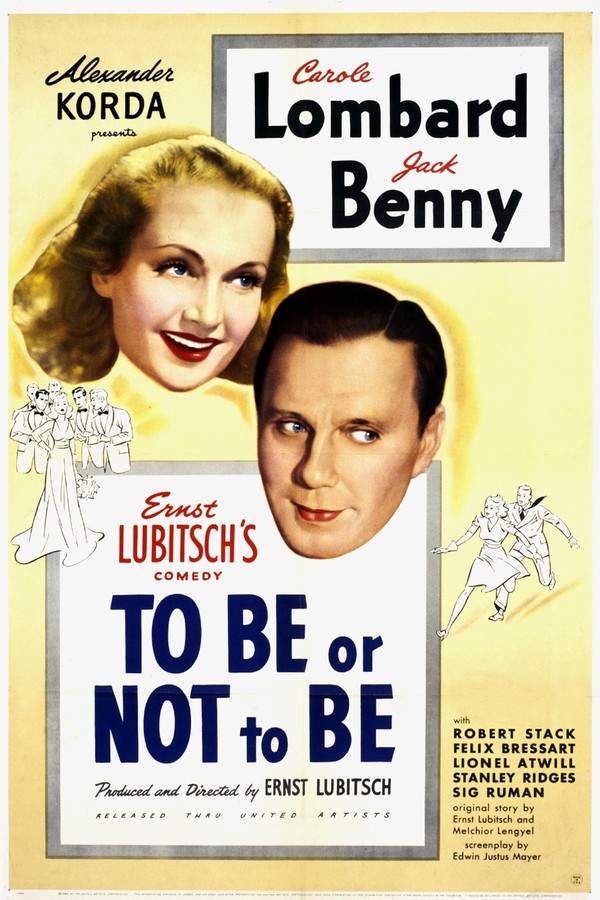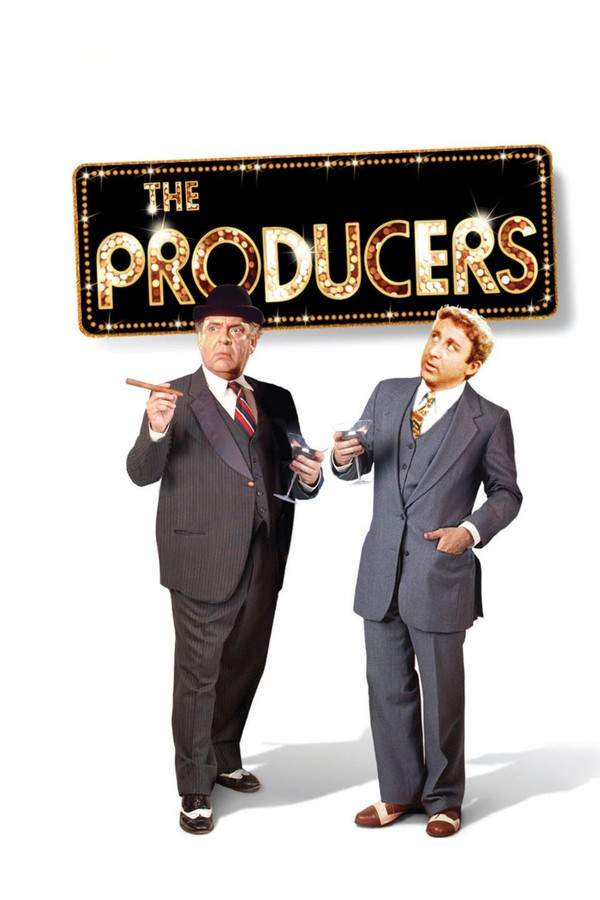
The Producers 1968
Made by

AVCO Embassy Pictures
Test your knowledge of The Producers with our quiz!
The Producers Plot Summary
Read the complete plot summary and ending explained for The Producers (1968). From turning points to emotional moments, uncover what really happened and why it matters.
Max Bialystock, played by Zero Mostel, is a once-prominent Broadway producer now trapped in a cycle of failures. His current existence is a struggle for financial survival, spent courting wealthy but elderly women to fund his next theatrical endeavor, which may never see the light of day. In a desperate attempt to escape his mounting financial troubles, he hides in his office from persistent creditors and disgruntled investors, clinging to framed photographs of his female companions, altering which one he displays based on who is visiting him that day. Rent has long been overdue, further heightening the tension of his precarious situation.
In enters Leo Bloom, portrayed by Gene Wilder, a timid accountant with a penchant for anxiety. The moment he arrives at Bialystock’s office to audit the books, it becomes clear that he is not just any accountant; he carries a small security blanket in his pocket, which sends him into a frenzy if taken from him. As Bloom inspects the accounts, he uncovers a significant error – a two-thousand-dollar overcharge from Bialystock’s last production that raised $60,000 yet only spent $58,000. This revelation opens a door to a greater scheme as Max convinces Leo to hide the discrepancy. The plan suggests that if a play is guaranteed to flop, the IRS is unlikely to investigate its finances, thus making it possible for Bialystock to profit illegally from the production’s failure.
So begins their audacious venture: to create a guaranteed flop by once again overselling shares on a grand scale while producing a show that is destined to close on opening night. The duo quickly realizes that in order for their plan to succeed without any repercussions, they must select the perfect production. They stumble upon the most questionable option imaginable – Springtime for Hitler: A Gay Romp with Adolf and Eva at Berchtesgaden, a shockingly irreverent piece penned by the eccentric former Nazi, Kenneth Mars. The naive, yet earnest, Franz Liebkind is all too eager to sign over the rights, believing that they want to show the world a loving portrayal of Hitler.
To ensure the production is a disaster, they recruit flamboyant director Christopher Hewett, whose past works have all flopped. The role of Hitler is filled by the hapless flower child Lorenzo St. DuBois, or L.S.D., played by Dick Shawn, who barely grasps the nature of the role he has taken on. As Max sells an outrageous 25,000% of the show to his aging investors, they decorate the office and employ a new receptionist, Ulla, creating an illusion of success.
When the curtain rises on opening night, the audacious musical kicks off with the title song, “Springtime For Hitler”, which is a grotesque yet cheery celebration of Nazi Germany’s conquests. Max’s plan to ensure a scathing review by bribing The New York Times critic, however, backfires spectacularly. The audience, instead of reacting with horror, finds L.S.D.’s performance both hilarious and satirical, completely misinterpreting the intention behind the production.
As intermission unfolds, patrons rave about the standout absurdities, leaving Max and Leo in a state of disbelief as their expectations are turned upside down. Meanwhile, Franz’s anger boils over upon seeing his beloved work ridiculed, leading him to confront the audience indignantly. Yet, unable to handle the disruption, someone takes action to swiftly remove him from the stage—leading the audience to believe his outburst was simply part of the performance.
To the shock of Max and Leo, Springtime For Hitler becomes an unexpected sensation, resulting in the exact conundrum they attempted to evade—investors now expect returns that can’t be paid. As tensions rise between the partners, they are soon threatened by an irate Franz, who feels betrayed and accuses them of violating their agreement. In a moment of unity, they plot to end their production in spectacular fashion by blowing up the theater.
This act of desperation lands them in court, where Leo delivers an emotional plea about Max’s character, calling him both brilliant and selfish. Despite their heartfelt defense, the jury finds them criminally guilty, sealing their fates with a prison sentence. In the end, Max, Leo, and Franz find a peculiar way to adapt to their new lives, continuing to create plays even behind bars, with Leo carrying on their original scheme of over-selling shares to fellow inmates—including the warden. The final song, “Prisoners of Love,” closes the story as credits roll, leaving the audience with a bittersweet yet humorous resolution.
The Producers Timeline
Follow the complete movie timeline of The Producers (1968) with every major event in chronological order. Great for understanding complex plots and story progression.
Max Bialystock's Decline
Max Bialystock, a once-successful Broadway producer, finds himself in a downward spiral of failure. He struggles to maintain a hand-to-mouth existence while indulging in relationships with wealthy elderly women to fund his next unproduced play.
Meeting Leo Bloom
Bialystock meets Leo Bloom, a nervous accountant, who arrives to audit the books of his last play. During this encounter, Bloom discovers a significant overcharge in the accounts, and Bialystock persuades him to help hide this small fraud to avoid prison.
The Flop Scheme
Realizing that producing a flop could benefit him financially, Bialystock convinces Bloom that they can profit from a guaranteed failure. They plan to oversell shares of a new play and flee the country with the leftover funds, setting the stage for their dubious venture.
Choosing the Play
After sifting through numerous terrible plays, Max and Leo settle on 'Springtime for Hitler,' a misguided musical written by an ex-Nazi. They believe its absurd premise will ensure it is a flop, and they charm the playwright into signing over the stage rights.
Hiring a Flamboyant Director
To further ensure the play's failure, they hire flamboyant director Roger De Bris, known for his productions that close on the very first day of rehearsal. This decision is part of their larger scheme to create a strictly dismal production.
Casting Lorenzo St. DuBois
The role of Hitler goes to Lorenzo St. DuBois, a carefree hippie who accidentally walks into the audition. His lack of seriousness about the role is deemed ideal by Max and Leo, as they believe he will contribute to the play's failure.
Overselling Shares
Bialystock embarks on the outrageous move of selling 25,000% of the play to eager investors, particularly targeting his elderly female clientele. With this massive overselling, they begin to envision their escape to Rio De Janeiro.
Opening Night
The much-anticipated opening night of 'Springtime for Hitler' unfolds. Despite Max's efforts to secure negative reviews, the audience misinterprets the production as a satire, much to the shock of both Max and Leo.
Audience Reaction
Instead of the expected backlash, the audience finds the performance laughably entertaining. As members rave about the show, Max and Leo realize their plan is derailing as the production gains unexpected accolades.
Franz's Outrage
Franz Liebkind, the playwright, becomes enraged by L.S.D.'s interpretation of Hitler. In his fury, he storms onto the stage to confront the audience, but his outburst is interpreted as part of the performance, further endearing the show to viewers.
Hit Show Surprise
Despite all plans for failure, 'Springtime for Hitler' is declared a smash hit. This realization shocks Max and Leo, as it means their investors will expect a financial return they cannot fulfill.
Confrontation with Franz
Max and Leo are confronted by a deeply humiliated Franz, who accuses them of betraying his trust and breaking the 'Siegfried Oath'. In the heat of the moment, the trio reconciles and decides to take drastic measures.
Blowing Up the Theater
In a final act of desperation, Max, Leo, and Franz band together to blow up the theater to end their disastrous production. The explosion results in their arrest, leading them to face serious charges.
The Trial
At their trial, despite Leo's emotional testimony about Max's character, they are found 'incredibly guilty'. Their efforts to escape justice unraveled spectacularly, leading to their inevitable conviction.
Producing in Prison
Now imprisoned, Max, Leo, and Franz find a way to continue producing plays. They jokingly call their latest venture 'Prisoners of Love' while Leo continues to engage in over-selling shares to fellow inmates and the prison staff.
The Producers Characters
Explore all characters from The Producers (1968). Get detailed profiles with their roles, arcs, and key relationships explained.
Max Bialystock (Zero Mostel)
Max is a desperate, aging Broadway producer whose charm and charisma mask a deeply flawed psyche. He resorts to unethical schemes to regain his lost glory, embodying both theatricality and cunning. His relationships with older women reveal his manipulative traits while his partnership with Leo shows glimpses of vulnerability.
Leo Bloom (Gene Wilder)
Leo is a timid and neurotic accountant whose anxiety often gets the better of him. Initially hesitant about the morally questionable scheme, he eventually finds strength in friendship but struggles with the ethical implications of their plot. His character evolution reflects a journey from fear to boldness.
Franz Liebkind (Kenneth Mars)
Franz is a deranged ex-Nazi playwright whose misguided passion for Hitler provides a wildly comedic element to the story. His eccentric personality and obsessive dedication to his play add layers to the plot as he hilariously misunderstands the true nature of Bialystock and Bloom's production.
Roger De Bris (Christopher Hewett)
Roger is a flamboyant transvestite director whose reputation for disastrous productions makes him the perfect choice for Bialystock and Bloom's scheme. His outrageous style and over-the-top theatricality become pivotal in the unexpected success of their intended flop.
Lorenzo St. DuBois (Dick Shawn)
Lorenzo, known as L.S.D., is a carefree hippie who inadvertently lands the role of Hitler. His whimsical interpretation adds a comic twist that contrasts sharply with the play's controversial subject. His character reflects the era's counterculture movement, emphasizing absurdity and humor.
The Producers Settings
Learn where and when The Producers (1968) takes place. Explore the film’s settings, era, and how they shape the narrative.
Time period
The film reflects the characteristics of the mid-20th century, capturing the post-WWII era when themes of satire and absurdity gained popularity in art and entertainment. The portrayal of historical figures and the backdrop of Broadway contribute to the cultural zeitgeist of that time.
Location
Broadway, Rio De Janeiro
The movie mainly takes place in the bustling environment of Broadway, known as the hub of American theater where countless productions vie for attention. The story hints at a planned escape to the vibrant and exotic Rio De Janeiro, symbolizing freedom and a new beginning away from the pressures of their failed production.
The Producers Themes
Discover the main themes in The Producers (1968). Analyze the deeper meanings, emotional layers, and social commentary behind the film.
💰
Greed
Greed drives the characters' actions as Max Bialystock and Leo Bloom concoct a scheme to enrich themselves at the expense of investors. Their misguided hopes for financial gain lead to chaotic and humorous situations, illustrating the dark side of ambition unchecked by moral considerations.
🎭
Theatrical Satire
The film presents a bold and outrageous satire about the theater industry and the absurdity of its narratives, particularly through the ill-fated production of 'Springtime for Hitler'. It touches upon controversial subjects, highlighting how art can sometimes challenge societal norms and provoke unexpected responses.
🔗
Friendship
Despite their shady dealings, the evolving friendship between Max and Leo is a central theme, showcasing how they navigate crises together. Their bond is tested through comedic trials, ultimately revealing that companionship can endure even the most futile plots and plans.

Coming soon on iOS and Android
The Plot Explained Mobile App
From blockbusters to hidden gems — dive into movie stories anytime, anywhere. Save your favorites, discover plots faster, and never miss a twist again.
Sign up to be the first to know when we launch. Your email stays private — always.
The Producers Spoiler-Free Summary
Discover the spoiler-free summary of The Producers (1968). Get a concise overview without any spoilers.
In the glittering yet cut‑throat world of Broadway, a faded legend struggles to keep his name alive. Max Bialystock is a once‑celebrated producer whose recent misfires have left him scrambling for cash, courting wealthy benefactors and juggling dubious debts. His flamboyant swagger masks a deep‑seated desperation to reclaim the spotlight, and his office is a chaotic shrine to former glories, littered with photographs that shift to match his latest patron.
Enter the nervous, meticulous accountant who prefers ledgers to limelight. Leo Bloom arrives with a pocket‑sized security blanket and a mind wired for caution, only to discover a financial discrepancy that opens a door to an audacious idea. Together they hatch a scheme that flips the typical Broadway gamble on its head: they will deliberately craft the worst possible production, sell more shares than the theater can hold, and profit from the inevitable collapse. Their partnership balances Max’s daring bravado with Leo’s anxious precision, creating a comedic tension that fuels the plan’s absurdity.
The premise unfolds against a backdrop of rehearsals, flamboyant set designs, and a cast of eccentric collaborators, all set to the lively, satirical tone that defines the film. The story revels in the paradox of trying to engineer failure while the very act of doing so becomes a tantalizing, tongue‑in‑cheek adventure. As the duo prepares to launch their intentionally dreadful musical, the audience is invited to watch a high‑stakes con wrapped in the bright lights, glitter, and irreverent humor of the theatrical underworld.
Can’t find your movie? Request a summary here.
Movies with Similar Twists and Themes
Uncover films that echo the narrative beats, emotional arcs, or dramatic twists of the one you're exploring. These recommendations are handpicked based on story depth, thematic resonance, and spoiler-worthy moments — perfect for fans who crave more of the same intrigue.
Featured on this page

What's After the Movie?
Not sure whether to stay after the credits? Find out!
Explore Our Movie Platform
New Movie Releases (2025)
Famous Movie Actors
Top Film Production Studios
Movie Plot Summaries & Endings
Major Movie Awards & Winners
Best Concert Films & Music Documentaries
Movie Collections and Curated Lists
© 2025 What's After the Movie. All rights reserved.


